Understanding MRP Systems: A Comprehensive Guide for Manufacturers
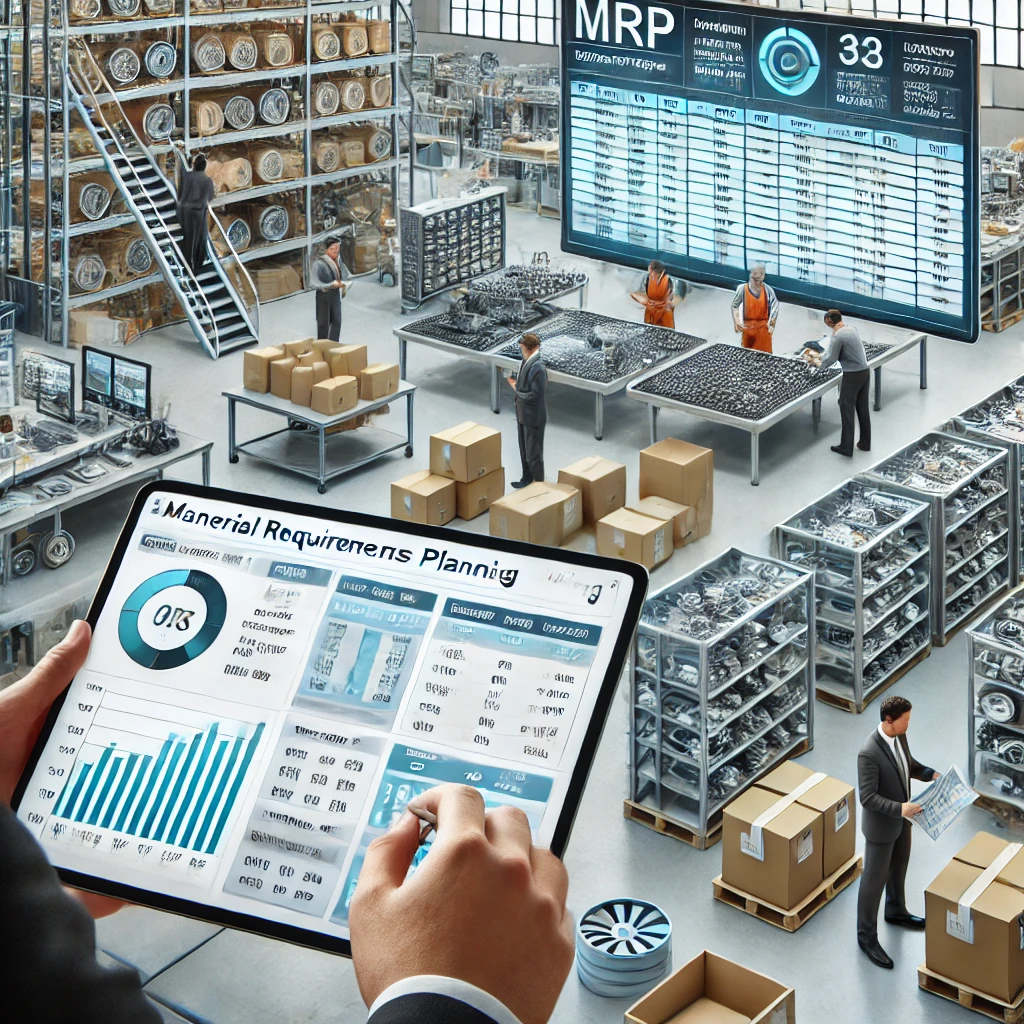
What is an MRP System?
Material Requirements Planning (MRP) is a computer-based inventory management system designed to assist production managers in scheduling and placing orders for items of dependent demand. Dependent demand items are components of finished products—the demand for which is dependent on the demand for the final product.
Key Functions of MRP Systems:
- Inventory control
- Production planning
- Scheduling
- Purchasing management
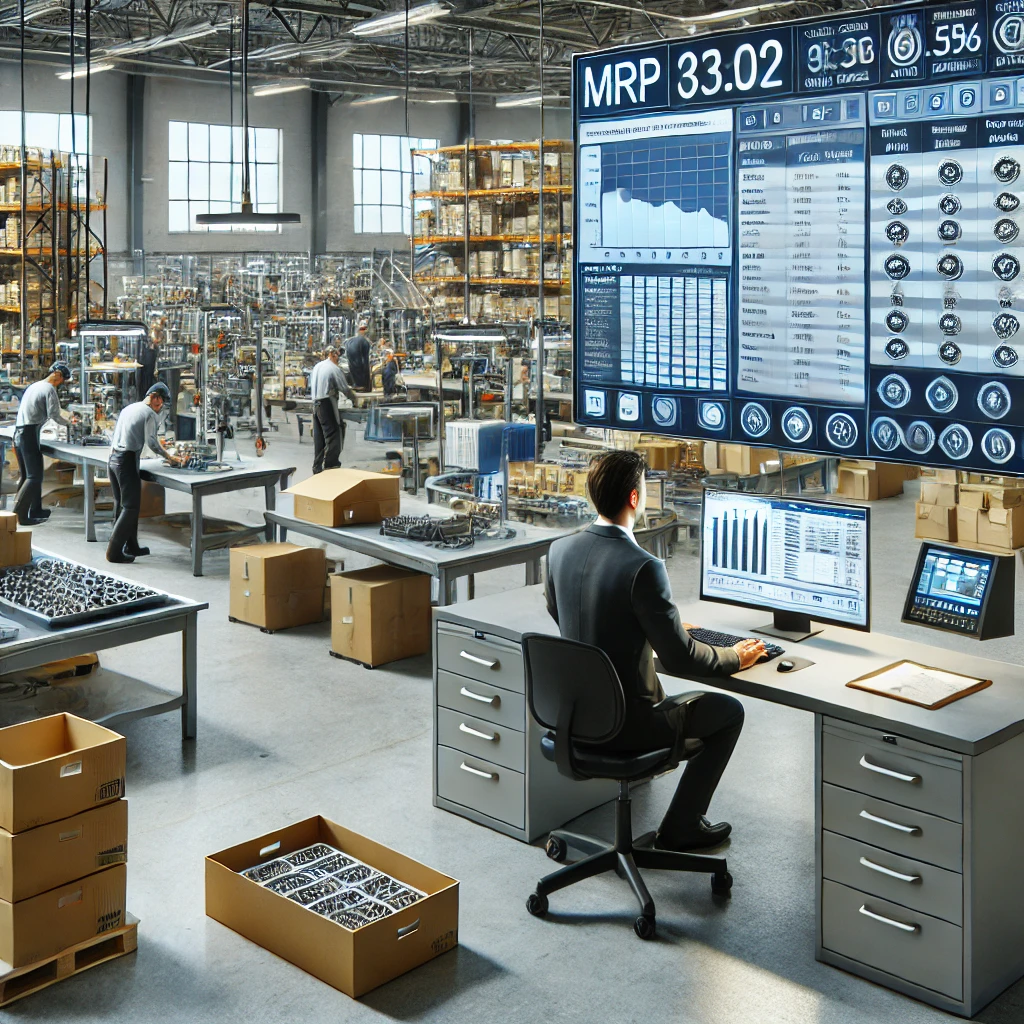
The Evolution of MRP Systems
MRP I (Material Requirements Planning)
- Focused primarily on materials planning and inventory control
- Introduced in the 1960s
MRP II (Manufacturing Resource Planning)
- Expanded to include capacity planning, financial planning, and simulation capabilities
- Gained popularity in the 1980s
ERP (Enterprise Resource Planning)
- Integrates MRP with other business functions like finance, HR, and customer relationship management
- Became prevalent in the 1990s and continues to evolve
Core Components of an MRP System
- Master Production Schedule (MPS)
- Specifies what will be manufactured and when
- Bill of Materials (BOM)
- Lists all the components required to produce each item
- Inventory Records
- Provides detailed information on available and on-order materials
- Planning and Control System
- Processes data to generate actionable outputs
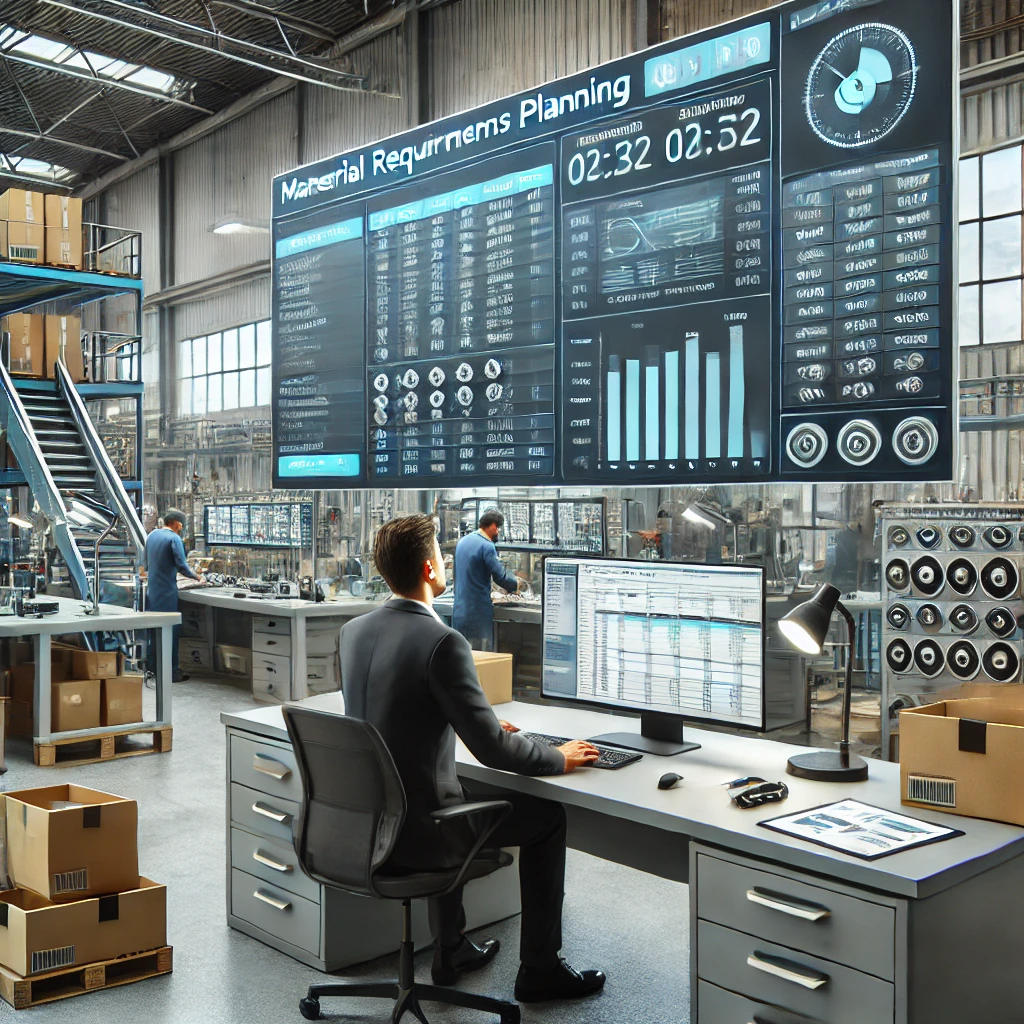
How MRP Systems Work
- Input Processing
- System receives data from MPS, BOM, and inventory records
- Material Requirements Calculation
- Determines gross and net requirements for each item
- Time Phasing
- Schedules production and purchases based on lead times
- Output Generation
- Produces reports and action recommendations
Benefits of Implementing an MRP System
- Improved Inventory Management
- Reduces excess inventory while preventing stockouts
- Enhanced Production Efficiency
- Optimizes production scheduling and resource allocation
- Better Customer Service
- Enables more accurate delivery date promises
- Cost Reduction
- Minimizes carrying costs and production inefficiencies
- Increased Visibility
- Provides clear insights into the entire production process
- Facilitated Decision Making
- Offers data-driven insights for strategic planning
Challenges in Implementing MRP Systems
- Data Accuracy
- System effectiveness depends on the quality of input data
- Resistance to Change
- Employees may resist adopting new processes
- Integration Issues
- Challenges in integrating MRP with existing systems
- Initial Costs
- Significant investment in software, hardware, and training
- Complexity
- Requires thorough understanding for effective use
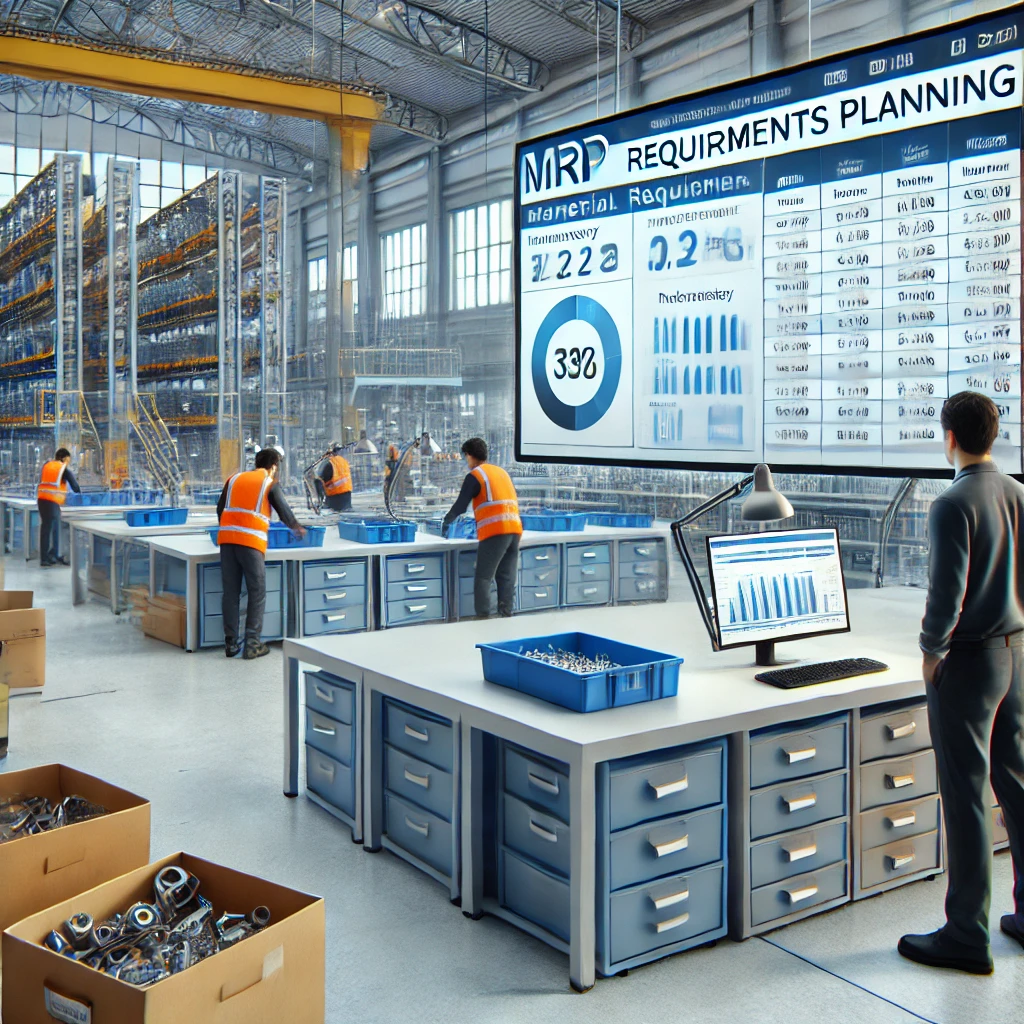
Best Practices for MRP Implementation
- Ensure Data Accuracy
- Regularly audit and clean data inputs
- Provide Comprehensive Training
- Invest in thorough training for all users
- Start Small
- Begin with a pilot program before full implementation
- Customize Wisely
- Adapt the system to your specific needs, but avoid over-customization
- Continuous Improvement
- Regularly review and optimize MRP processes
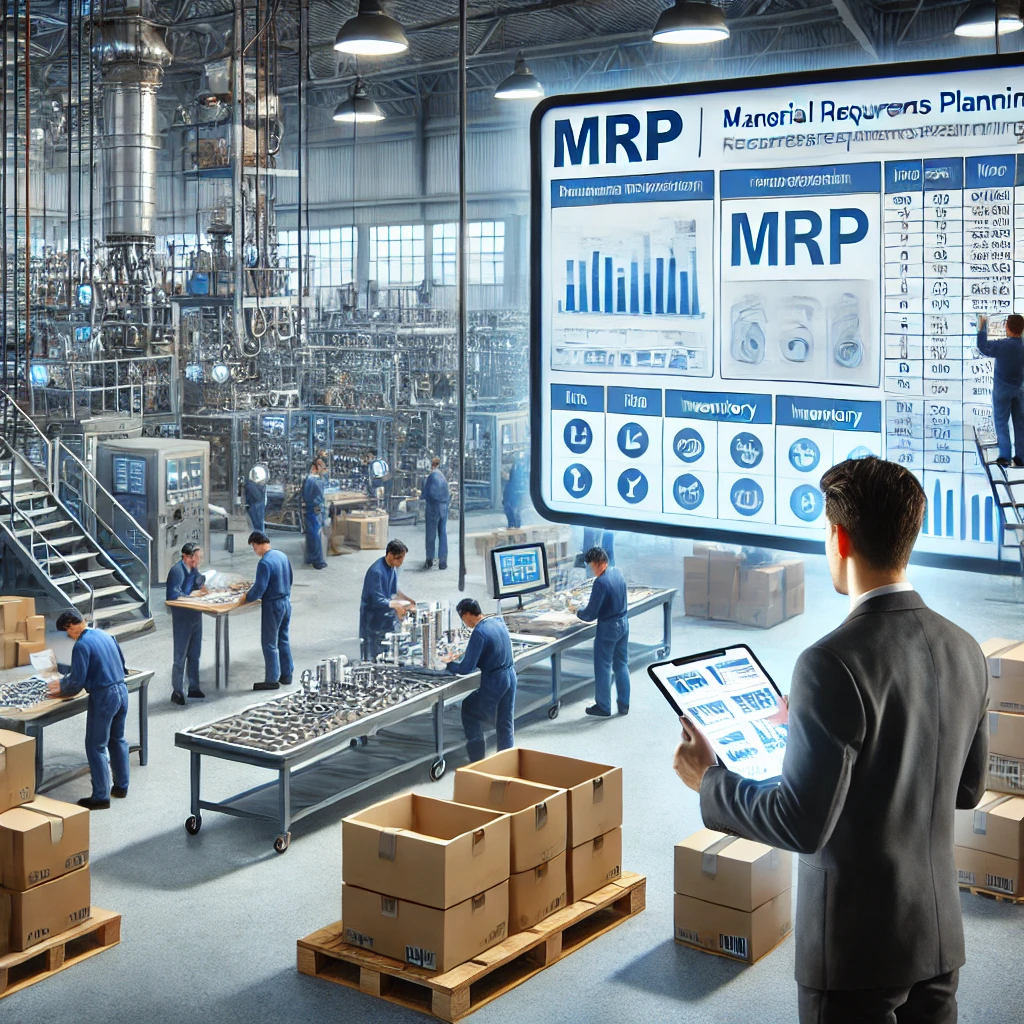
MRP in Different Manufacturing Environments
Discrete Manufacturing
- MRP excels in environments producing distinct items
Process Manufacturing
- Requires adaptations to handle continuous production processes
Make-to-Order vs. Make-to-Stock
- MRP can be configured to support both production strategies
Future Trends in MRP Systems
- Cloud-Based Solutions
- Increasing adoption of cloud MRP for improved accessibility and scalability
- AI and Machine Learning Integration
- Enhanced forecasting and decision-making capabilities
- IoT Integration
- Real-time data collection from production equipment
- Advanced Analytics
- More sophisticated data analysis for deeper insights
- Mobile Accessibility
- Greater emphasis on mobile interfaces for on-the-go management
Conclusion
Material Requirements Planning (MRP) systems are indispensable tools for modern manufacturers, offering a structured approach to production planning, inventory management, and resource allocation. By providing real-time insights and data-driven recommendations, MRP systems enable manufacturers to optimize their operations, reduce costs, and respond more effectively to market demands.
While implementing an MRP system can be challenging, the benefits far outweigh the initial hurdles. As manufacturing continues to evolve with Industry 4.0 technologies, MRP systems will play an increasingly crucial role in maintaining competitiveness and driving innovation.
For manufacturers looking to stay ahead in a rapidly changing industry, understanding and effectively leveraging MRP systems is not just an advantage—it’s a necessity.
How Linbis Can Help
At Linbis, we understand the critical role that MRP systems play in modern manufacturing. Our expertise in logistics and manufacturing software development allows us to offer cutting-edge MRP solutions tailored to the unique needs of each manufacturer.
Here’s how Linbis can assist your business in implementing and optimizing MRP systems:
- Custom MRP Development: We create bespoke MRP solutions that align perfectly with your specific manufacturing processes and business goals.
- System Integration: Our team ensures seamless integration between your MRP system and other business software, including ERP, CRM, and supply chain management tools.
- Data Migration and Cleansing: We help you transfer and clean your existing data to ensure accuracy and reliability in your new MRP system.
- User-Friendly Interfaces: Linbis develops intuitive interfaces that make your MRP system accessible to all relevant staff, minimizing the learning curve.
- Real-Time Analytics: We implement advanced analytics capabilities, providing you with actionable insights for improved decision-making.
- Scalable Solutions: Our MRP systems are designed to grow with your business, accommodating increasing complexity and volume over time.
- Training and Support: Linbis offers comprehensive training programs and ongoing support to ensure you get the most out of your MRP system.
- Cloud and Mobile Solutions: We can develop cloud-based and mobile-accessible MRP systems for enhanced flexibility and accessibility.
- IoT Integration: For manufacturers embracing Industry 4.0, we can integrate IoT devices with your MRP system for real-time production data.
- Continuous Optimization: Our team works with you to continuously refine and optimize your MRP processes, ensuring you stay at the forefront of manufacturing efficiency.
By partnering with Linbis, you’re not just getting an MRP system – you’re gaining a technology partner committed to enhancing your entire manufacturing process. Our team of experts can help you navigate the complexities of modern manufacturing resource planning, ensuring that your MRP implementation delivers maximum value to your business.
Remember, while Linbis provides the technological expertise, the success of your MRP implementation ultimately depends on how well it’s integrated into your business processes. Let Linbis guide you in leveraging this powerful technology to streamline your operations, improve efficiency, and drive your manufacturing business forward in an increasingly competitive global market.
